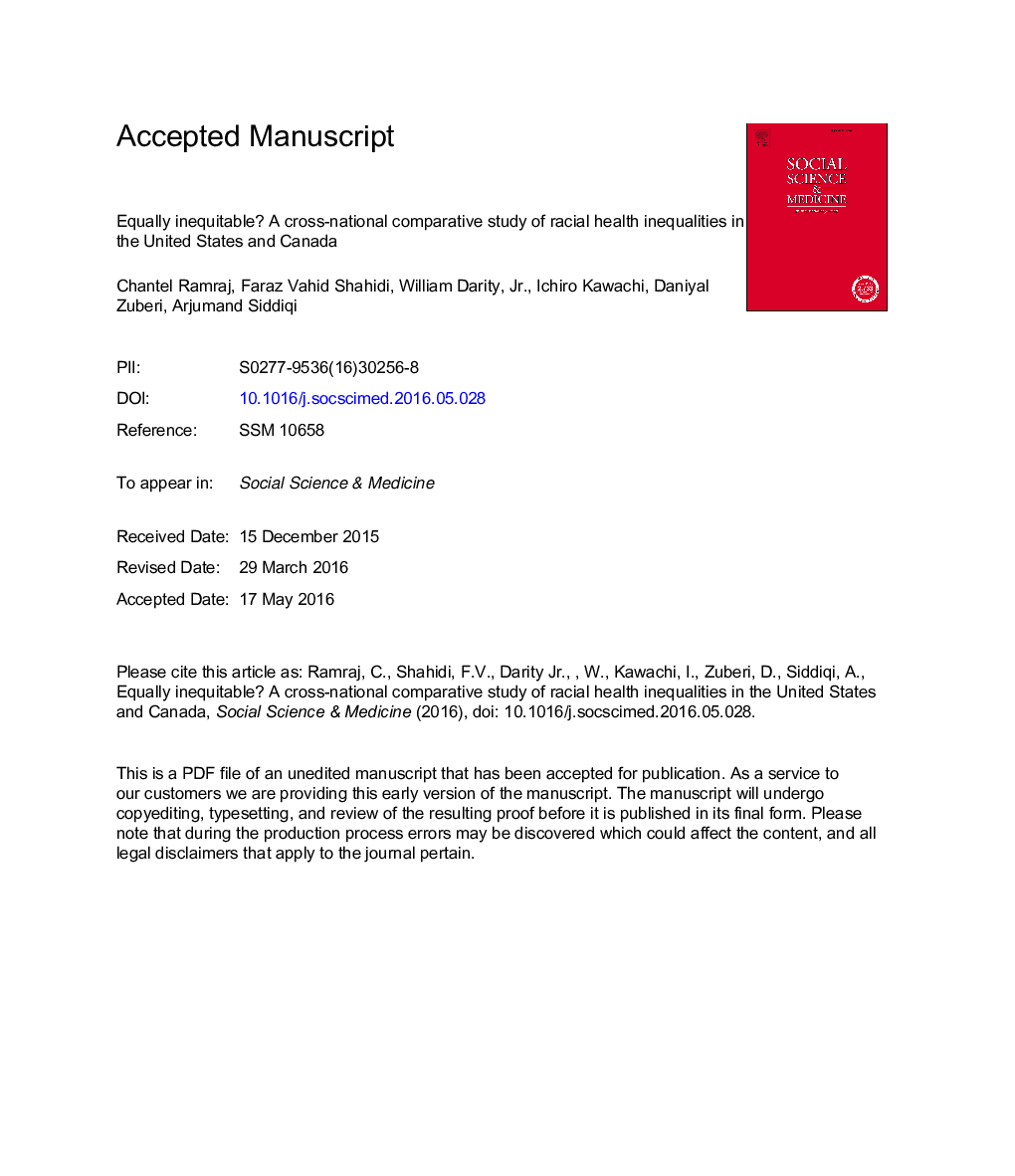| Article ID | Journal | Published Year | Pages | File Type |
|---|---|---|---|---|
| 7329788 | Social Science & Medicine | 2016 | 28 Pages |
Abstract
Prior research suggests that racial inequalities in health vary in magnitude across societies. This paper uses the largest nationally representative samples available to compare racial inequalities in health in the United States and Canada. Data were obtained from ten waves of the National Health Interview Survey (n = 162,271,885) and the Canadian Community Health Survey (n = 19,906,131) from 2000 to 2010. We estimated crude and adjusted odds ratios, and risk differences across racial groups for a range of health outcomes in each country. Patterns of racial health inequalities differed across the United States and Canada. After adjusting for covariates, black-white and Hispanic-white inequalities were relatively larger in the United States, while aboriginal-white inequalities were larger in Canada. In both countries, socioeconomic factors did not explain inequalities across racial groups to the same extent. In conclusion, while racial inequalities in health exist in both the United States and Canada, the magnitudes of these inequalities as well as the racial groups affected by them, differ considerably across the two countries. This suggests that the relationship between race and health varies as a function of the societal context in which it operates.
Related Topics
Health Sciences
Medicine and Dentistry
Public Health and Health Policy
Authors
Chantel Ramraj, Faraz Vahid Shahidi, William Jr., Ichiro Kawachi, Daniyal Zuberi, Arjumand Siddiqi,
